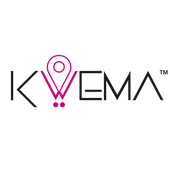Now that many employees in the US are returning to work, some thoughts and questions have risen around worker protection for COVID-19 and workers’ compensation. While some labor groups are in favor of creating new adjustments in order to extend the protection of employees, some others believe that there can be consequences considering that many employers are reeling from the state lockdown and economic downturn.
Here at Kwema, we will give you an overview of what is happening around this topic.
First, workers’ compensation is a type of insurance for injuries or disabilities directly tied to the workplace. It covers medical and rehabilitation costs and lost days' compensation. Generally, this insurance doesn’t cover illnesses like the cold or flu because they are not commonly directly tied to the workplace.
On the other hand, OSHA requires employers to maintain an accurate record of work-related injuries and illnesses suffered by employees. Otherwise, a non-compliance with these requirements can result in penalties. Fatalities, injuries that cause workers to miss work days and any injury that requires additional medical treatment beyond first aid, are some examples of incidents that employers must record.
Now, OSHA has said that COVID-19 qualifies as a recordable disease if an employee got infected while performing his/her work activities. However, given the nature of the way COVID-19 spreads in the community, the employer will have to determine whether the infection is a work-related illness or not. Here you can find more information regarding reporting coronavirus cases at the workplace.
So, is COVID-19 covered by workers’ compensation? Based on our findings, each state has different rules for workers’ compensation and it may cover COVID-19, but just for specific cases.
Fewer than one-third of the states in the US are changing their workers’ compensation policies in order to provide additional coverage for certain workers, such as health care professionals and first responders. For instance, in Washington workers’ compensation coverage for these workers can include testing, medical treatment expenses and paid days if the employee isn’t able to work whether sick or in quarantine.
Perhaps the most significant change comes out of California. In May, the governor signed an executive order that extends the workers’ compensation policies for all essential employees, including grocery workers and farmworkers. Coverage can include medical treatment, disability indemnity and death benefits and reimbursement to the employee for PPE.
As more and more employees are going back to the workplaces and the coronavirus disease still spreads across the country, we believe that other states will continue to analyze what kind of adjustments are necessary to extend worker protection. Moreover, employers will have to be prepared to face potential claims for COVID-19 exposure risks at the work.
As we previously said, determining if an employee contracts COVID-19 at the workplace can be difficult given the nature of the virus. Kwema’s Smart Badge for Contact Tracing & Emergency Alerts helps to prevent potential COVID-19 outbreaks at workplaces. If someone is diagnosed positive for COVID-19, our technology allows you to trace where the employee was, identify who they may have come into contact with and classify all employees into 3 groups of risk and take action to prevent spread.
Watch how Kwema is disrupting workplace safety
Photo by Norma Mortenson on Pexels
does workers comp cover covid
does workers comp cover covid 19
is corona virus workers compensation
workers compensation and covid 19
